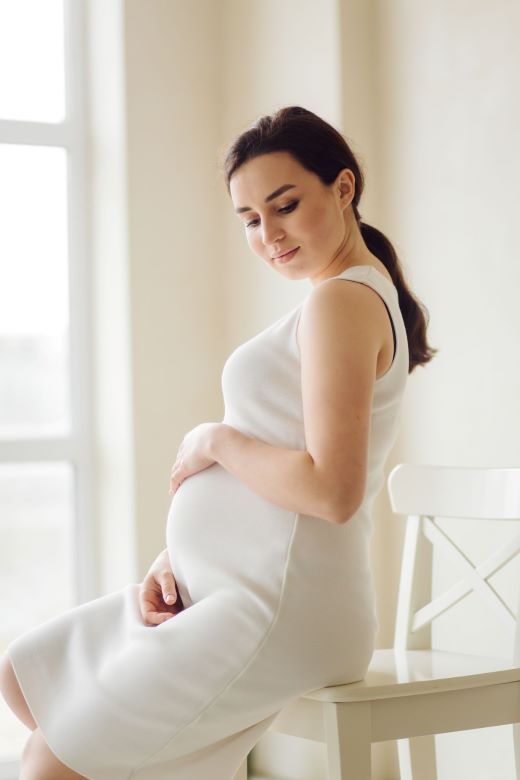Intensive mothering, a term coined by sociologist Sharon Hays, refers to a cultural norm and set of expectations emphasizing the idea that mothers devote a significant amount of their time, energy, and resources for their child’s upbringing.
The concept of intensive mothering, where public opinion influences the ‘right way’ to be a mother, describes mothers as the primary and preferred caregivers by default, leaving little to no time for themselves.
“It is a common thing for mothers to deprioritize self-care during their pregnancy and even after delivery,” said Dr. Emerita Rilloraza, an OB-Gyne from Manila Doctors Hospital. “Mothers often feel the need to put their health care on hold to focus on others.”
While this may be true for some people, this should not be the norm.
During a forum for expectant mothers, Dr. Rilloraza enumerated the major milestones and changes during pregnancy and early stages of motherhood. To help mothers of all ages, Rilloraza offered significant health advice to help guide mothers and moms-to-be on their journey to motherhood.
Before the baby is born
“During your pregnancy, your body changes, as well as your outlook in everything so it’s important to have the support of your loved ones,” Rilloraza added.
During pregnancy, it is crucial to pay attention to health issues that may arise. These include pregnancy-related diabetes or high blood pressure and other complications. To prevent those, the doctor advised women to be wary of their daily food and fluid intake.
“Pregnant women should be getting enough nutrition during their pregnancy as it supports fetal growth and development, reduces the risk of complications, supports lactation, and maintains the mother’s health”, the OB-Gyne added.
Apart from nutrition, moms-to-be should also be getting proper sleep, avoiding alcohol and tobacco, practicing yoga and meditation, and keeping themselves stress-free. “Social connection is very significant during this life stage. Having a supportive social network – be it with your family, friends, and community is essential to maintain your overall well-being,” she pointed out.
Danger signs and high-risk pregnancies
While certain body changes are inevitable, expectant mothers should know the danger signs if they have high-risk pregnancies. According to Rilloraza, certain factors may add to a more complicated pregnancy.
Pregnant women are more prone to having high-risk pregnancies if they belong in the young primigravid (age less than 17 years), old primigravid (age more than 35 years), and grandmultiparity (with five or more children) groups.
Additionally, women may have more high-risk pregnancies if they have poor OB history,
hypertension, diabetes, bronchial asthma, heart disease, thyroid disorders, renal disease, with malignancies like cancer, had multiple pregnancies, and with previous C-section delivery.
Life as a new mom
After delivery, care is as crucial as the early stages of pregnancy as it requires critical attention to ensure the health of the mother and child. Most new moms also experience postpartum baby blues after childbirth, which can range from having mood swings, anxiety, and difficulty sleeping. This usually begins within the first 2-3 days after delivery and may last for up to two weeks.
However, when a new mom experiences a more severe, long-lasting form of postpartum baby blues, it can be considered already as postpartum depression or peripartum depression (if it started during pregnancy and continues until childbirth).
Most common symptoms of postpartum depression are severe mood swings, attention withdrawal, difficulty bonding with the child, intense irritability and anger, severe anxiety and panic attacks, overwhelming tiredness, and recurring thoughts of harm and death. “If you have any of these symptoms after childbirth, it is best to seek immediate medical care from your healthcare provider or your OB-Gyne”, Rilloraza added.
Celebrating self-care and well-being
Many people struggle with making time for themselves, especially with new moms after childbirth. Dr. Rilloraza emphasized the need for self-care for both the mom and child’s well-being.
“Self-care doesn’t have to be expensive. You just need to find the right balance in parenting your child and taking care of yourself too.”
From getting more sleep, meeting with friends, decluttering your home to doing and learning new hobbies, self-care positively impacts one’s mental, physical, emotional, spiritual, and social health.
“Learning to prioritize yourself amidst your life as a mom also has its health benefits. It reduces your risks of future medical issues such as heart disease. Caring for yourself is often the first step to caring for others.”
As the old saying goes, you cannot pour from an empty cup. It is important to also prioritize yourself so you can provide the best possible care for your baby and your family. (PR)

